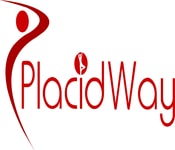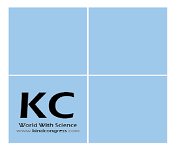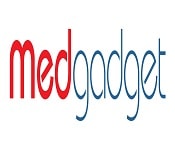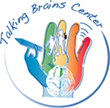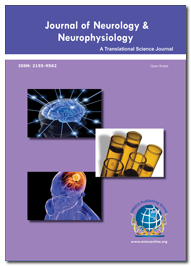Theme: Scientific gathering to unleash the new horizons in neurocognitive study
Neurocognitive 2018
We extend the heartiest welcome at the “25th Cognitive Neuroscience Congress 2018” scheduled during November 12-13, 2018 at Dubai UAE, revolving around the theme “Scientific gathering to unleash the new horizons in neurocognitive study”. This conference invites all the participants around the globe to share a platform and in order to convey their insights and recent developments in the field of Cognition and Neuroscience.
ME conferences is an amalgamation of Open Access Publications and worldwide international science conferences and events. Established in the year 2007 with the sole aim of making the information on Sciences and technology "Open Access", ME conference publishes scholarly journals in all aspects of Science, Engineering, Management and Technology journals. ME conference has been instrumental in taking the knowledge of Science & technology to the doorsteps of ordinary men and women. Research Scholars, Students, Libraries, Educational Institutions, Research centres and the industry are main stakeholders that benefitted greatly from this knowledge dissemination. ME conference also organizes 3000+ International conferences across the globe, where knowledge transfer takes place through debates, roundtable discussions, poster presentations, workshops, symposia and exhibitions.
Benefits of Conference
Cognitive Neuroscience Congress itself is an idiosyncratic discussion to bring forth the new approaches and also to unite recognized scholastics, concerned with neuroscience, Cognition, also in-field experts, Psychiatrists, Public well-being experts, researchers, scholarly researchers, industry specialists, researchers to trade about cutting-edge research and innovations. The point to organize this conference is to give a stage to academicians and specialists with the wide spectrum of disciplines to debate and deliberate on social change that is encompassed by innovation and technology.
Target Audience
- Expert in Electrophysiological Studies
- Neurologists
- Neuro-physiotherapists
- Neuro-radiologists
- Cardiologists
- Experts in Tissue engineering
- Neuro-ophthalmologists
- Electro-physiologists
- Professors associated with neurology
- Psychiatrist
- Lecturers and Students from Academia in the research of Neurology
Track 1: Cognitive Psychology
Cognitive Psychology is the scientific study of mind as information processor. It involves the study of all the things that go on inside your brain. Knowing more about how people think and process the data not only help researchers to gain deeper understanding of how the human brain works, but it allows psychologists to develop new ways of serving people dealing with cognitive psychological difficulties. Cognitive psychology has also improved our understanding of how people form, store, process and recall the memories. Meanwhile the emphasis of psychology shifted away from the study of conditioned behavior and psychoanalytical notions about the study of the mind, towards the understanding of human information processing, using laboratory investigation. Cognitive approach believes that internal mental behavior can be scientifically studied using experiments. Cognitive psychology assumes that a mediation process occurs between stimulus (input) and response (output). Computer analogy is also proved to be very useful in case of cognitive psychology-the use of the computational tools for thinking how the human mind handles information is known as the computer analogy. Essentially, computer codes information, stores information, utilize the acquired information, and produce an output. Such idea of using computer as a tool was adopted by cognitive psychologists as a model of how human thoughts work.
- Mental processes
- Memory processes
- Language processes
- Metacognition
- Abnormal psychology
- Personality psychology
Track 2: Behavioral Psychology
Behavioural psychology is a systematic approach to understanding the behaviour of humans and other animals. This sates that all the behaviours are either responses or reflexes to the respective stimuli in the environment, or are the result of individual’s history, especially including reinforcement and punishment. This whole together with the individual’s current state and controlling stimuli decides one’s behaviour. The researchers and scientists who study behavioural psychologies are striving to understand why we behave the way we do now. Also, scientists are concerned with discovering patterns in the action and behaviours of human and animals with the hope that behavioural psychology can help us to predict how an individual will behave in a particular situation.
- Physiological psychology
- Psychopharmacology
- Genetic mechanism
- Developmental mechanism
- Genetic research technique
- Linguistics
Track 3: Computational Neuroscience
Computational neuroscience is the study of brain function by the application of computational tools, mathematical approaches and theories in terms of information processing of the structures that make up the nervous system. This not only includes neurology but covers several things in one umbrella like: it incorporates diverse approaches from electrical engineering, computational engineering, and computer science and physics in order to understand how human’s nervous system processes information. Computational neuroscience focuses on describing fully functional and realistic neurons and neural system. Computational neuroscience also possesses potential in aiming towards questions with a wide spectrum. How Axons develop? How dendrites form? How do synapses form? How cognition phenomenon takes place? How sensory motors act?
- Mathematical modelling
- The cognitive ability of the nervous system
- Single-neuron modelling
- Axonal patterning
- Synaptic Plasticity
- Sensory processing
Track 4: Cognitive Genomics
Cognitive genomics is the sub-branch of genomics-related to the cognitive function of the brain in which the genes and other non-coding sequences related to the health and neural activity is studied. This makes a relative bridge in between the cognition-action study and genetic study to find the mutualistic relationship in between the both. The cognitive genomic study can undoubtedly drive us to our future evolution as a species. Although both cognition (can also be called as brain action) and genetics are full of complications and the brain, genetics and human experience will result in putting forward more complicate aspects than it may now seem. Scientists and researcher’s study towards cognitive genomics will surely help us to reach genetic brain optimization and overcome genetic brain disorders.
- Neuroanatomy
- Comparative genomics
- Evolutionary biology
- Molecular biology
- Neurophysiology
- Evo-geno approach to genome investigation
- Evo-devo approach to genome investigation
- Imaging genomics
Track 5: Central Nervous System
Central Nervous System (CNS) is the part of nervous system consisting of the brain and spinal cord. The central nervous system is so named because it consolidates the information that it receives from the respective source, bring together and influence the activity of all parts the body of all multicellular animals except sponges. Cells like neuroglial cells are found in large amount in interneuronal space of the central nervous system. The CNS is protected much well than any other organ in the body. The main line of defense of CNS is the bone of the skull and spinal column that creates physical barrier to injury. Also it has a shock absorbing fluid-filled space below the bones that is called syrinx. Unfortunately this protection leads to severe complications if any injury occurs to CNS then the soft tissue of brain and spinal cord swells that causes pressure because of the restricted space. Also it is very complicate to deal with diseases and disorders related to the central nervous system.
- Autonomic nerve
- Progressive autonomic failure
- Encephalopathy
- Myelopathy
- Bipolar disorder
- Meningitis
Track 6: Neurogenetics
Neurogenetics is the study of the role of genetics in the function and development of the nervous system. This draws aspects from both neuroscience and genetics but particularly it focusses on how the genetic code carried by an organism express its characteristics in terms of neurology. This is very helpful in finding the genetic base of several neural disorders. The genetic behind complex neurological disorders are the source of ongoing research, but the genetic basis of simple diseases and neurological disorders has been accurately pinpointed. One of the most important factors that drag researchers for the study continuation in neurogenetics is greater knowledge of gene loci that represents linkage of genetics to neurological disorders.
- Gene sequencing
- Statistical analysis
- Recombinant DNA
- Animal model assay
- Human research
- Genetic mutation
Track 7: Cognitive Development
Cognitive development includes study in neuroscience and psychology which is concerned with child’s development in terms of perceptual skill, conceptual resources and several other aspects of the developed adult brain. From the point of view with respect to the adult, cognitive development can also be called as intellectual development. Earlier it was believed that infants remain without cognition until they learned the language, but soon after cognitive development study, it was proved that infants are aware of the surroundings and explore since birth. Cognition development depends on cognition which itself is an action of learning. Cognition phenomenon varies person by person because of factors like how the person receives, thinks the process and gains an understanding of the world by their own interaction towards it.
- Stages of cognitive development
- Visual perceptions
- Language acquisition
- Bilingualism
- Whorf’s hypothesis
- Piaget’s theory
Track 8: Neuroimaging
Neuroimaging is a technique which is used to image the structure and function of the central nervous system. Furthermore, it can also be used to study the pharmacology of the nervous system. Neuroradiologists deals with the diagnosis of gross intracranial disease, the structure of nervous system and injury. This provides a similar way to reach to working of the human central nervous system. Functional imaging which is one of the types of neuroimaging, used to diagnose metabolic disease, injury and intracranial disease. All the research in this emerging field is ultimately directed towards the empirical benefits for patients and society in general. It is also very preferable to be used in study of neurodegenerative diseases, stroke and chronic pain.
- Structural imaging
- Functional imaging
- Computed axial tomography
- Diffuse optical imaging
- Magnetoencephalography
- Event-related optical signal
- Neurotransmitters
Track 9: Mirror Neurons
Mirror neurons are that class of neuron which only fires when an animal or human acts and when they observe the same action performed by another. It is named so because of the neuron “mirrors” the behaviour of the other. Such neurons are primarily observed in primate species, though they are also found in humans birds have been found possessing imitative behaviours and neurological evidence also suggests the presence of some form of the mirroring system. Some researchers in neuroscience consider that this mirror system provides the physiological mechanism for the coupling of action. Also, mirror neurons may be important for understanding the actions and thoughts of other people for learning new and unique skills by imitation.
- Imitative resonance behaviours
- Motor mimicry
- Autism
- Sleep paralysis
- Automatic imitation
- Theory of mind skills
- Functional neuroimaging
Track 10: Neurological Disorders
Any disorder related to the nervous system comes under the category of neurological disorders. Although both brain and spinal cord are surrounded by tough membranes, by bones of the skull and spinal vertebrae and also isolated by the blood-brain barrier. Involvement for neurological disorders includes preventative measure such as lifestyle changes, physiotherapy, operations, medication and neurorehabilitation. Neurological problem’s specific causes vary but genetic disorders, infections, congenital abnormalities and brain injury including malnutrition, spinal cord or nerve injury. Millions of people are affected by neurological disorders; more than 6 million people die each year because of stroke, over 80% of these deaths take place in developed and developing countries.
- Paralysis
- Stroke
- Congenital abnormalities
- Autoimmune disorders
- Lysosomal storage disease
- Loss of seizures
- Altered level of consciousness
- Delirium and dementia
Track 11: Cognitive Dysfunction
Loss of intellectual functions such as thinking, remembering, and reasoning occurs in cognitive dysfunction. Cognitive function is also known as brain fog. The people suffering from the same loses concentration power and face trouble with verbal recall. According to Marshall Pathogenesis, microbes are the causative agents of cognitive dysfunction. Moreover, diseases like Alzheimer’s disease are the severe forms of cognitive dysfunction. For elderly cancer patients, cognitive dysfunction has many applications. A patient suffering from this needs special hospitality and special care planning than that of normal patients. Not all patients suffering from cognitive dysfunction in depression, and not all people with depression suffer from the cognitive function.
- Ageing immune cells
- Functional decline
- Chronic fatigue syndrome
- Marshall protocol
- Single photon emission computed tomography
- Neuroendocrine imbalance
- Glial cell abnormalities
Track 12: Geriatric Neurology
Geriatric Neurology is the branch of medicine, deals with the study of neurologic disorders occurring in elderly. Geriatrics is concerned with treating and diagnosing the illness that occurs in adults, usually over the age of 60. Accurate diagnosis of neurological disorders in older adults can be difficult because the signs of the disease may mimic normal signs of ageing. Patients frequently have more than a neurologic disease which makes it more difficult to find the best treatment in that case. Ageing also brings slight memory loss which is normal until and unless it intervenes in daily activities. Memory loss range from treatable conditions such as depression, vitamin B12 deficiency, to more severe dementia and sleep disorders.
- Neurodegenerative changes
- Ageing brain
- Gait disorder
- Numbness
- Vitamin deficiency
- Repeating tasks
Track 13: Cognitive Neural Network
The cognitive neural network is complex network architecture with the group of several neurons underlying cognition. This also involves a study of thought pattern recognition, information processing, data collection and feedback mechanism. This study is used to explain the artificial intelligence hypothesis which is an electronic mimic along with computational tool application of the human neural network system (Central Nervous System). The original goal of the Artificial Neural Network was to come up with the solution of a problem in the way the human brain would. The main component of this system is the central executive, is a supervising system which regulates the other components of working memory.
- Machine learning
- Cognitive computing
- Information processing theory
- Pattern recognition
- Feed forward network
- Feedback network
Track 14: Electrophysiology
Electrophysiology is the field of study that deals with the electrical properties and activities of biological cells and tissues. It helps in studying the generation of the electrical signals and their effect on the body. EPS is the test that is carried out to understand the nature of abnormal heart rhythms, known as arrhythmias. The other aspects of electrophysiology are implanting cardiac devices to regulate the heartbeat. Also electrical signal in the retina is a pre-installed property of a nervous system which remains electrically active at all times and the standard of activity alters with excitation. Ophthalmologist drops light on the retina to excite the retina, a number of responses can be stimulated from different layers of the retina with then are recorded and observed.
- Action potential activity
- Electrodiagnosis
- Electrophysiologic retinal testing
- Intracellular recording
- Extracellular recording
- Electroencephalography
- Intracardiac electrogram
Track 15: Cognitive Health
Cognitive health refers to the health of the brain and its function wholly and solely. This deal with several types of functions such as; memory, judgment, intuition. In short, if cognitive disorders are there, it can take many forms. One of the common cognitive health related problems is a decrease in mental function, dementia, which generally develops in the later phase of life. Cognitive health decline naturally occurs while ageing but it is age-independent and can be found in any age group. Even, other health problems that are not age related also fall under the umbrella of cognitive issues. Like; depression is not necessarily age- related, same with brain injury or vitamin B12 deficiency.
- Motor function
- Partial insomnia
- Drug overdose
- Stroke
- Sensory function
Track 16: Diagnosis Of Neurocognitive Disorders
As such there are no proper cures for neurocognitive disorder or the disease that cause it. Though several drugs like antidepressants, antipsychotics and others that treat memory loss and other behavioural symptoms, may help to treat the disease. But these are not proper solutions, instead, they just suppress the symptoms and their effects. Newly developed mental exercise such as “computerized brain training programs” can help to maintain target specific regions of the brain. Diseases like amnesia if caused by underlying cause like; infections, the cause may be diagnosed but not amnesia. Majorly diseases related to cognition if are mild can be diagnosed by several approaches instead of medication only.
- Mild cognitive impairment
- Lumbar puncture
- Fluoroscopy
- Cerebrospinal fluid analysis
- Computed tomography
- Discography
- Evoked potential
Importance and scope
Different approaches including molecular, cellular, functional, developmental, psychological, structural and medical aspects of the nervous system have broadened the scope of cognitive neuroscience over the time. Different aspects of neuroscience have also given rise to other disciplines as neuroimaging, electrophysiological studies, neuroradiography and neuro-cardiology. Cognitive Neuroscience Congress is one of its kinds, worldwide distinguished academics in the field of neuroscience, cognition, neurology and other related disciplines (scientists, industry researchers, public health professionals, scholars) will share a platform to exchange about the state of the art research and technologies.
Why Dubai?
Dubai is the most populous and largest city in the United Arab Emirates with the gross domestic product of about $90 billion. Dubai supports the emirate’s hospitality sector as well as large retail industry. There are around 25 universities in and around UAE which are working in the field of neuroscience and cognitive neurology. Around 1000 neurologists, psychiatrist, electro-physiologist are working exclusively on neurological studies and cognition.
There are around 280 neurologists registered in Dubai with over 9 million of a population. Having more doctors and researchers in neurology is very important as it is sure that population will continue to increase age.
Conference Highlights
- Cognition
- Motor mimicry
- Psychology
- Neurorehabilitation
- Neuroradiology
- Neurological disorders
- Cognitive disorders
- Neurogenetics
- Electrophysiologic retinal testing
- Nerocardiology
- Cognitive development
- Intracranial diseases
- Geriatrics
- Intracardiac electrogram
- Cognitive health
- Diagnosis of neural and neurocognitive disorders
Why attend?
Cognitive Neuroscience Congress is a unique forum to bring together worldwide distinguished academics in the field of neuroscience and neurology, Brain researchers, public health professionals, scientists, academic scientists, industry researchers, scholars to exchange about state of the art research and technologies.
The aim of this conference is to stimulate new ideas for new approaches towards the understanding and treatment that will be beneficial across the spectrum of neurocognition.
Target Audience
Directors, Neurologist, Neurosurgeons, Psychiatrist, Head of department, Professors and Students from Academia in the research of Neuroscience. Neurophysiologists, Neurologists, Neurosurgeons, Neuroradiologists, Cardiology, Electrophysiologists, Ophthalmologists, Psychiatrists, Physiatrists, Pharmacists, Research scientists, Neurology Organizations and societies.
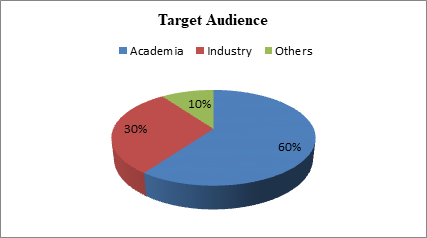
A Unique Opportunity for Advertisers and Sponsors at this International event:
Universities associated with Neuroscience in Globe are:
- University of Oxford
- Harvard University
- University Of Cambridge
- Stanford University
- University College London
- Princeton University
- University of California
- Yale University
- Cornell University
- Indiana University
- Johns Hopkins University
- The University of California at Irvine
- University of California at San Diego
- University of Amsterdam
- University of North Carolina
- Alfaisal University
- Mansoura University
- King Abdulaziz University
- Assiut University
- University of Edinburgh
- University of Manchester
- Cardiff University
- University of Vermont
- University of Amsterdam
- Ghent University
- Maastricht University
Universities associated with Neuroscience in the Middle East are:
- Heriot University
- University of Bucharest
- International Medical University
- University of the West Timisoara
- Sunway University
- University of Malaya
- Dimensions International College
- National University of Singapore
Universities associated with Neuroscience in UAE are:
- King Saud University
- United Arab Emirates University
- King Abdulaziz University
- Ain Shams University
- Middlesex University
- American University of Beirut
- Zayed University
- Gulf Medical University
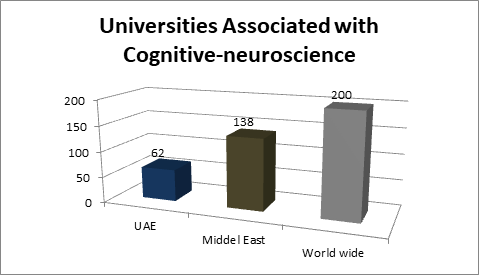
Major Neuroscience Hospital around the Globe:
- Emirates Hospital
- Neuro Spinal Hospital
- Medcare Hospital
- Medcare Orthopaedics & Spine Hospital
- Wooridul Spine Center
- American Center for Psychiatry and Neurology
- Al Amal Hospital
- American Hospital Dubai
Major Neuroscience Hospital around the Middle East:
- Dr Gebrane Psychiatry
- The Behman Hospital
- Heliopolis Psychiatric Hospital (Al-Matar)
- Serene Psychiatry Hospital
- Herzog Medical Center
- American Center for Psychiatry & Neurology - Sharjah
- American Center for Psychiatry and Neurology
- Psychiatric Hospital
- MIND Clinics
- Near East University Hospital
Major Neuroscience Hospital around the UAE:
- Govt. Psychiatry Hospital
- Ram Psychiatry Hospital
- Helwan Psychiatry Hospital
- Clinique Axium
- Royal Edinburgh Hospital
- St. Patrick's University Hospital
- Metro Psych Facility
- DelaCerna Hospital
- Aged Psychiatry Services
- The Ashburn Clinic
- Peace Health Ketchikan Medical Center
- Royal Alexandra Hospital Psychiatry
- Amager Hospital
- World Brain Center Hospital
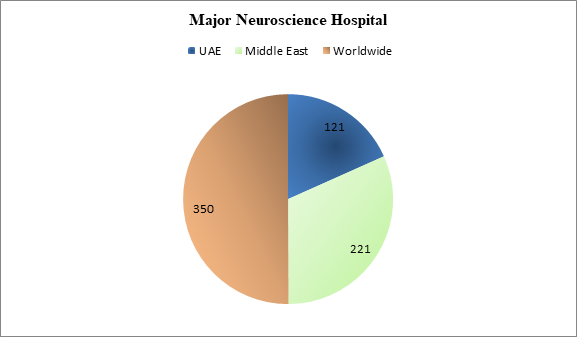
Related Societies
USA:
American Board of Psychiatry and Neurology (ABPN), American Society of Neuroimaging, Medical and health professional associations in Chicago, American Academy of Neurology (AAN), American Society of Neuroimaging, American Neurological Association (ANA), American Society of Neuroimaging, American Society of Neuroimaging, American Association of Neurological Surgeons, American Spinal Injury Association, National Institute of Neurological Disorders and Stroke, American Epilepsy Society, , Child Neurology Society, American Academy of Family Physicians, American Association for Cancer Research, American dental organizations, American Psychiatric Association, The American Clinical Neurophysiology Society, American Anthropometric Society, American Autonomic Society, American College of Neuropsychopharmacology, American Neuropsychiatric Association, American Society for Neurochemistry, Institute for Music and Neurologic Function, Davis Phinney Foundation, Dravet Syndrome Foundation.
Europe:
Association of British Neurologists, European Federation of Neurological Societies, Brain Research Trust, European Parkinson's disease Association, Turkish Neurological Society, Neurological Society of Serbia, Brain Research Trust, European Academy of Neurology, European Brain Council, British Neuropathological Society, Swiss Society of Neurology, Netherlands Society of Neurology, Scientific Society of Neurologists of the Ukraine, Moldovan Scientific Society of Neurologists, Association of Neurologists in Bosnia and Herzegovina, Bulgarian Society of Neurology, Croatian Neurological Society, Carlo Besta Neurological Institute, Czech Neurological Society.
Asia Pacific and Middle East:
Iranian Neurological Association, Iraq Neurological Society, Qatar Neuroscience Club, Indonesian Neurological Association, Neurological Society of India, Japanese Society of Neurology, Mongolian Association of Neurologist, The Jordan Neurological Society, Hong Kong Neurological Society, Indian Academy of Neurology, Kuwait Neurological Society, CHIMES Society, Danish Headache Center, Israel Neurological Association, League of Neurologists of Kazakhstan, Korean Neurological Association, Philippian Neurological Society, Saudi Neurological Society, National Association of Neurologists of the Kyrgyz Republic, Malaysia Society of Neuroscience, Myanmar Society of Neurology, Oman Neurology Society, Pakistan Society of Neurology, Palestinian Neurological Society, Indian Academy of Neurology.
Related Conference: Neuroscience Congress | Neurocognitive Science | Neurological Diseases | Behavioural Psychology | Neurocardiology |
International Conferences on Bipolar Disorder: Psychiatry and Mental Health, November 8-10, 2018, Abu Dhabi, UAE,
Emirates Neurology Society 6th International Congress 2018, January 12-13, 2018, Dubai, UAE,
14th Annual Update Conference on Clinical Neurology and Neurophysiology 2018, February 19-21, 2018, Tel Aviv, Israel,
5th International Conferences on Stroke and Neurological Disorder, October 22-23, 2018, Istanbul, Turkey,
International Neurone Diseases Congress, September 13-15, 2018, Bucharest, Romania,
22nd International Conferences on Neurology and Neurophysiology, April 23-24, 2018, Rome, Italy,
Advances in Alzheimer’s and Parkinson’s Therapies-AN AAT-AD/PD Focus Meeting 2018, March 15-18, 2018, Torino,
Italy,
24th International Conferences on Neuroscience and Neurochemistry, May 24-26, 2018, Barcelona, Spain,
26th European Neurology Congress, August 06-08, 2018 Madrid, Spain, 12th
5th International Conferences on Brain Disorders and Therapeutics, November 29-30, 2018, Madrid, Spain.
7th International Conferences on Brain and Neurological Disorders, April 10-12, 2018, Amsterdam, Netherlands,
14th International Congress on Psychiatric and Mental Health Nursing, July 25-26, 2018, Vancouver, Canada,
9th International Neuroscience Conferences, November 21-22, 2016, Melbourne, Australia,
International Conferences on Neurology and Neurophysiology, May 18-20, 2017, Munich, Germany,
28th International Conferences on Psychiatry & Mental Health, November 20-21, 2017, Melbourne, Australia,
North American Neuro-Ophthalmology Society 44th Annual Meeting 2018, March 03-08, 2018, Waikoloa Village, United States,
5th International Conferences on Parkinson’s Disease & Movement Disorders, October 17-18, 2018, Baltimore, USA,
17th International Neuroscience Conferences, October 16-17, 2017, Osaka, Japan,
4th International Conferences Neurological Disorders & Stroke, July 9-10, 2018, Sydney, Australia,
27th Euro-Global Neurologists Meeting, July 23-25, 2018, Moscow, Russia,
15th European Neurology Congress was organized during August 29-31, 2017 in London, UK. With the support and contribution of the Organizing Committee Members, we successfully hosted the event at the conference venue.
Firstly we must thank you for trusting us and participating at Neurology Congress 2017, a global platform to discuss various important aspects of Neurology and Neuroscience.
There are infinite reasons to extend our gratitude to you for making the Neurology Congress 2017 outstanding conference. We couldn't have done it without your continuous support and believe towards our organization, which mutually made to achieve Neurology Congress 2017 new height in the field of Neurology and Neuroscience.
The conference was marked by the attendance of young and brilliant researchers, business delegates and talented student communities representing more than 50 countries, who have driven this event into the path of success.
The conference was organized around the theme “Harnessing the understanding and advancement in Neurology and Neuroscience”. The event implanted a firm relation of upcoming strategies in the field of Neurology with the scientific community. The conceptual and applicable knowledge shared, will also foster organizational collaborations to nurture scientific accelerations. Allal Boutajangout, New York University School of Medicine, USA was the moderator of Neurology Congress 2017. We are much thankful to Allal Boutajangout for his great support and help.
The conference proceedings were carried out through various Scientific-sessions and plenary lectures, of which the following Speakers were highlighted as Keynote speakers: Allal Boutajangout, New York University School of Medicine, USA; Giovanni Antioco Putzu, Casa di Cura Sant’Elena, Italy; Yuri P Danilov, University of Wisconsin-Madison, USA; Khin Bo, Northern Lincolnshire & Goole NHS Foundation Trust, UK; Evelyn M Garcia, Virginia Tech Carilion School of Medicine, USA; Wai Kwong Tang, Chinese University of Hong Kong, Hong Kong; Xi Huang, Nanjing University of Chinese Medicine, China; Pankaj Sharma, Imperial College London, UK; Ara Bazyan, Institute of Higher Nervous Activity and Neurophysiology of RAS, Russia; Alice Ming Lin Chong, City University of Hong Kong, China. The conference witnessed an amalgamation of peerless speakers, Keynote speakers, well-known researchers and delegates who enlightened the crowd with their enviable research knowledge and on various alluring topics related to the field of Neurology through their fabulous presentations at the podium of Neurology Congress 2017.
ME Conferences offers its heartfelt appreciation to all the Organizing Committee Members, Chairs and Co-chairs, Speakers, Students, Media Partners and Editorial Board Members of Journal of Neurology & Neurophysiology, International Journal of Neurorehabilitation and Journal of Neurological Disorders who supported the conference in every aspect for the awe-inspiring exhibition at the venue.
We are also obliged to various delegate experts, company representatives and other eminent personalities who supported the conference by facilitating active discussion forums. We sincerely thank the Organizing Committee Members: Allal Boutajangout, New York University School of Medicine, USA, Giovanni Antioco Putzu, Casa di Cura Sant’Elena, Italy.
So as the continuation of Neurology Congress 2017, we would like to heartily invite you to our upcoming 25th Cognitive Neuroscience Congress 2018 scheduled in Dubai, UAE during November 12-13, 2018.
For more details visit: https://cognitive.neuroconferences.com
Conference Highlights
- Cognitive Psychology
- Behavioral Psychology
- Computational Neuroscience
- Cognitive Genomics
- Central Nervous System
- Neurogenetics
- Cognitive Development
- Neuroimaging
- Mirror Neurons
- Neurological Disorders
- Cognitive Dysfunction
- Geriatric Neurology
- Cognitive Neural Network
- Electrophysiology
- Cognitive Health
- Diagnosis Of Neurocognitive Disorders
To share your views and research, please click here to register for the Conference.
To Collaborate Scientific Professionals around the World
| Conference Date | November 12-13, 2018 | ||
| Sponsors & Exhibitors |
|
||
| Speaker Opportunity Closed | Day 1 | ||
| Poster Opportunity Closed | Click Here to View | ||
Useful Links
Special Issues
All accepted abstracts will be published in respective Our International Journals.
- Journal of Neurology & Neurophysiology
- Journal of Neurology and Neuroscience
- Journal of Neurological Disorders
Abstracts will be provided with Digital Object Identifier by







